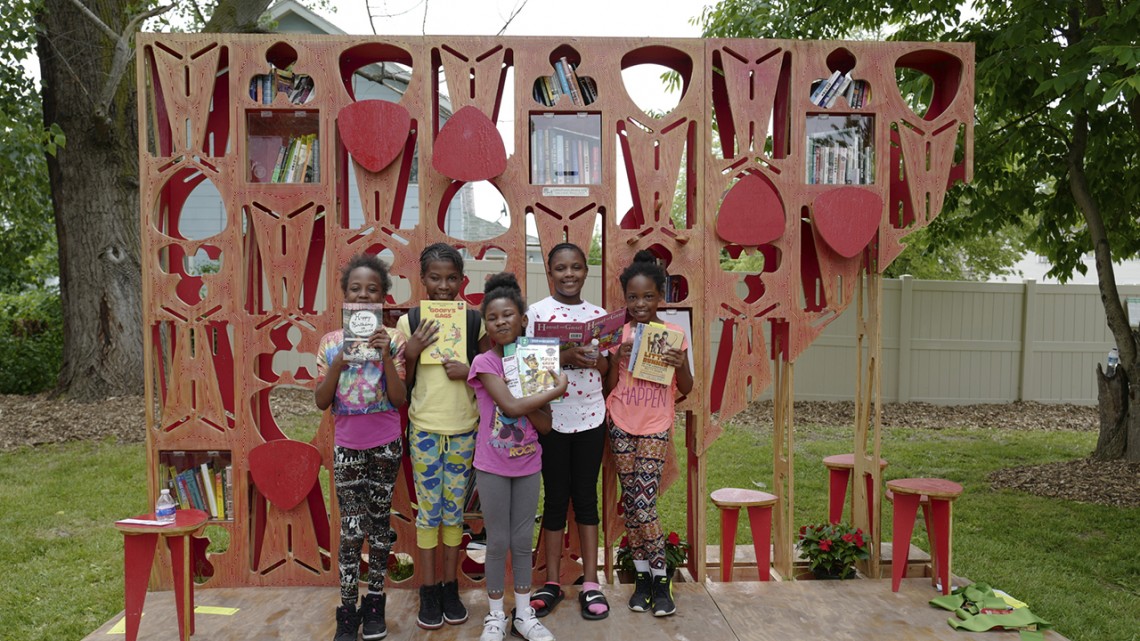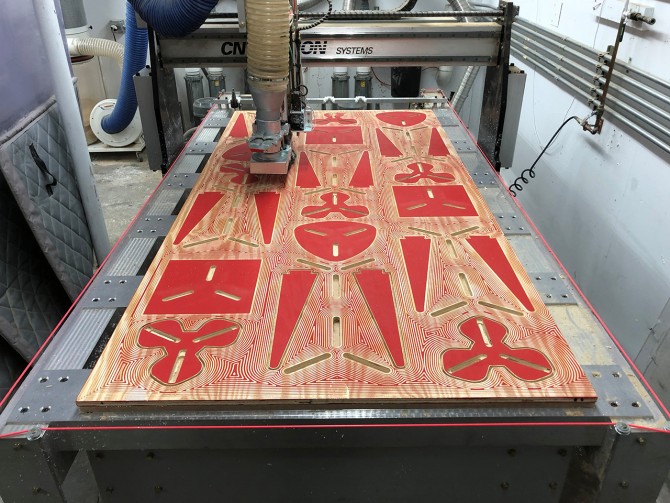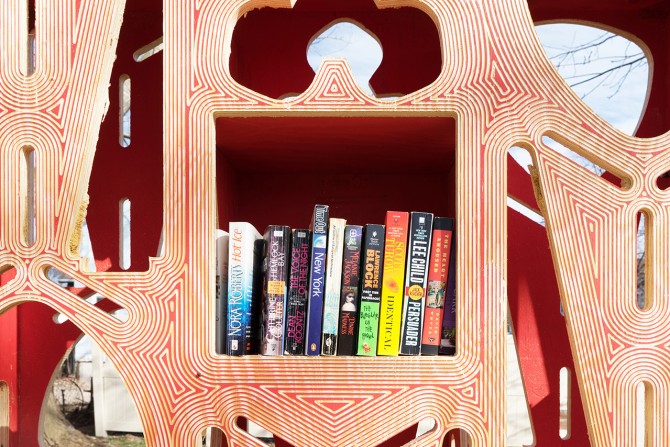
Young residents pick books at “Tripe (An Offally Little Library)” in Buffalo.
Design team creates an efficient little library in Buffalo
By Patti Witten
A structure combining a reading room, bookstacks and a stage opened in June at a community garden in the Riverside neighborhood of Buffalo, New York.
“Tripe (An Offally Little Library)” is a permanent outdoor mini-library, created under the direction of CODA, the firm of Caroline O’Donnell, the Edgar A. Tafel Associate Professor of Architecture at Cornell. The project was one of six winners in the Buffalo Architecture Foundation’s 2017 Little Free Library (LFL) competition.
Named for a “nose-to-tail” (use of the entire animal) culinary tradition, the project was an experiment in material efficiency, designed by CODA to include bookcases, space to read and seating.
A screen of etched plywood panels was constructed from “leftovers” in the production of the project’s 36 reading stools, using robotic computer numerical control milling in the College of Architecture, Art and Planning’s fabrication shops. Cutouts in the screen include waterproof book boxes and slots for storing the stools when not in use. The screen sits on a platform that functions as a reading area and stage.
“This kind of project allows us to experiment with how we can use materials thoughtfully without wasting anything, and how we can communicate and provoke others to think about their own practices with waste,” O’Donnell said.
The LFL competition jury selected “Tripe” from entries from seven states and four countries. The project met the competition’s design considerations to create a distinctive architectural style, shelter the library’s contents from the elements, provide easy visual access, and use recycled, reclaimed or sustainable materials. LFL committee chair and steward Matthew Etu said the concept CODA submitted was immediately recognized for its creativity, ingenuity and singularity.
“O’Donnell and her team were responsive to critique,” Etu said. “Despite budgetary constraints, they voluntarily increased the scope of their build to triple its original size, increasing the volume of reading material and providing a multifunctional installation.”
The winning teams were paired with hosts in underserved Buffalo neighborhoods, and each team received a modest stipend to build and install their libraries last spring.
“It’s a very small project, but it is important for us to do things that make a difference in the world,” O’Donnell said. “The importance of access to books should not be underestimated.”
CODA is interested in work that is complete only when the “final material” – the community – is added, she said: “The local people activate this piece by removing and replacing the stools, and using the stools for reading circles or for audience seating when the stage is used for performance.”
Project leader Alireza Shojakhani, M.Arch. ’18, agreed, saying “Tripe” had two lives: “First, when it was designed and fabricated inside the design studio, and second, as it became an active member of the neighborhood. The community’s involvement and interaction make our life and work as designers more meaningful.”
The CODA team also included Mwanzaa Brown, M.Arch. ’18; Laura-India Garinois, B.Arch. ’17; Yue (Maria) Ma, M.Arch. ’18;, Evan McDowell, B.Arch. ’19; Travis Nissen, M.Arch. ’17; Elizabeth Saleh, M.Arch. ’14; and Hana Svatos-Raznjevic, B.Arch. ’15.
Advising and assisting with the project were Martin Miller, associate professor of the practice in architecture; Frank Parish, AAP director of facilities; and AAP shop technicians Kurt Brosnan, Tyler Williams and Nicholas Mino. The Buffalo Architecture Foundation, Buffalo and Erie County Public Library, and local community members also participated.
Patti Witten is a writer for the College of Architecture, Art and Planning.
Media Contact
Get Cornell news delivered right to your inbox.
Subscribe


